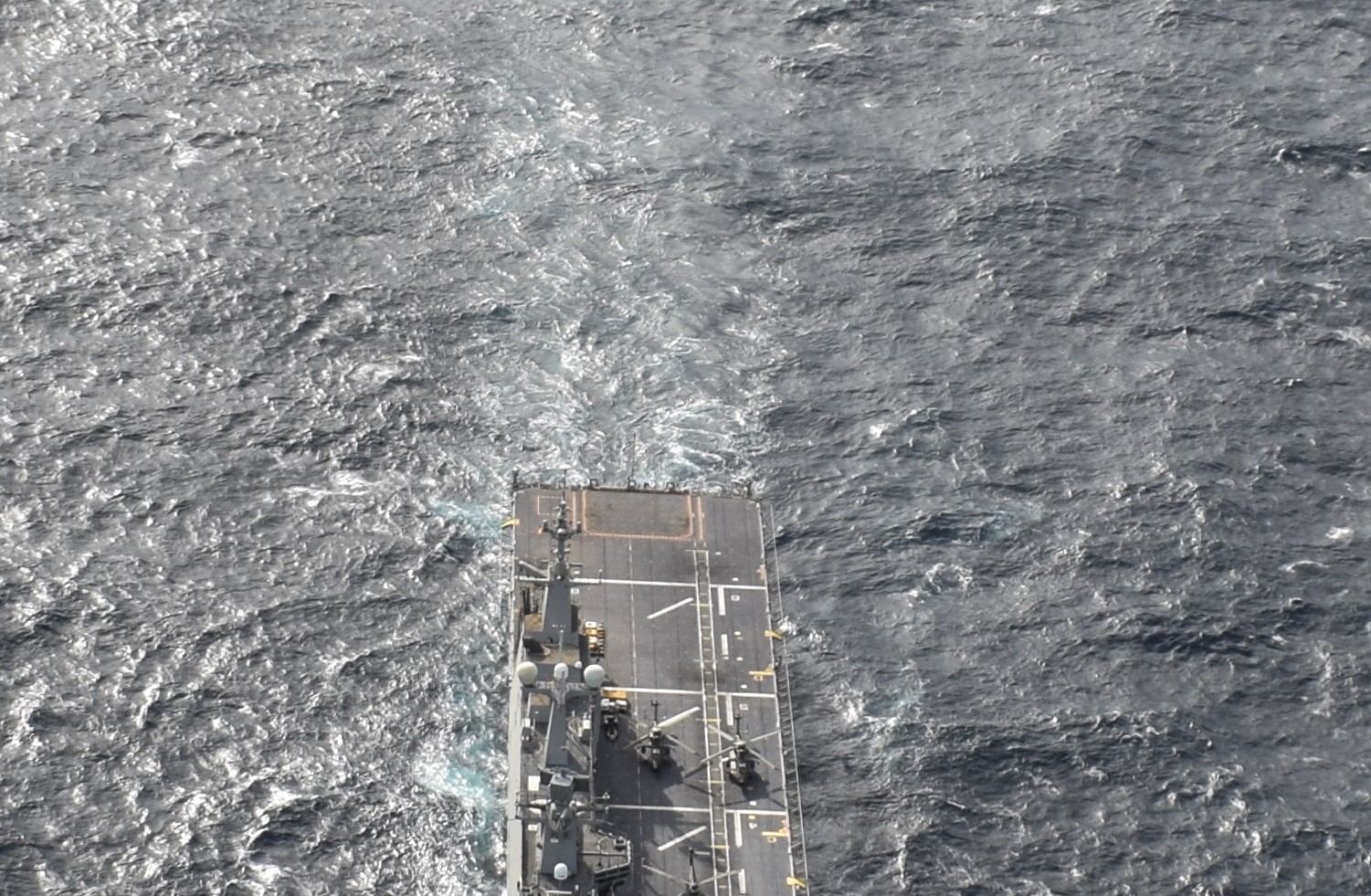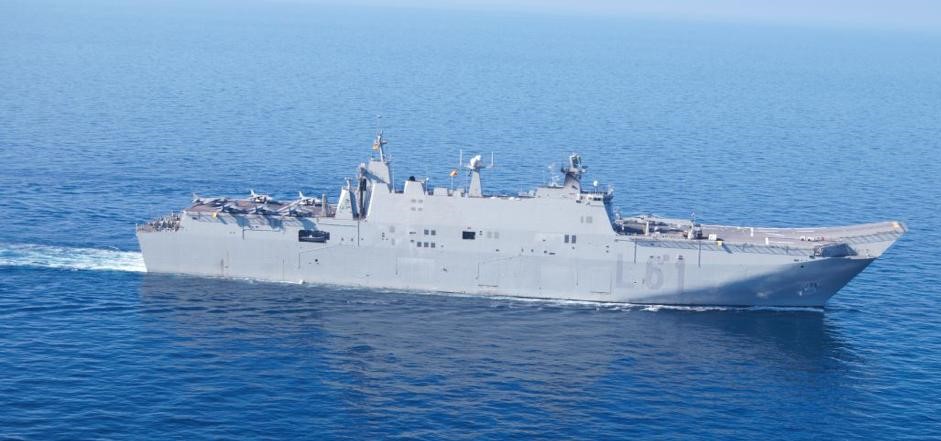
The 'Dédalo' Combat Expeditionary Group deploys once again, participating in NATO deterrence efforts
- For over three months, it will contribute to the security of allies from Istanbul (Turkey) to Helsinki (Finland)
The new deployment of the Expeditionary Combat Group 'Dédalo' begins in the Mediterranean and the Atlantic, being extended until mid-July. The deployment involves the vessels of the Navy´s Fleet Amphibious and Force Projection Group, 'Juan Carlos I' and 'Galicia', 'Harrier' aircraft, helicopters, a reinforced Landing Battalion of Marines and the frigates 'Blas de Lezo' and 'Reina Sofia'. Rear Admiral Gonzalo Villar assumes command once again.
Initially, the Group will be deployed throughout all the Mediterranean Sea to contribute to the strengthening of maritime security in this region, being crucial for Spanish security. Throughout more than one and a half months, it will work with partners and allies such as France, Italy, Greece and Turkey and will support NATO's Operation 'Sea Guardian' in the fight against the threat of transnational terrorism.
One of the main milestones in the Mediterranean will be the participation in NATO's Neptune Strike 'enhanced surveillance peacetime activities'. For 15 days the Group will remain under the military command of the Alliance, and its embarked 'Harrier' aircraft, along with those from the other participating aircraft carriers, will carry out, in addition to the traditional missions to ensure maritime superiority, other missions in support of the contingents deployed in Eastern European countries, including the troops that the Ministry of Defense is establishing in Slovakia to strengthen the Alliance's deterrence.
The 'Juan Carlos I' is expected to participate alongside the American aircraft carriers 'Dwight D. Eisenhower' and 'Theodore Roosevelt'; the French 'Charles de Gaulle' and the Italian 'Cavour'. The Turkish Navy's aircraft carrier 'Anadolu', twin to the 'Juan Carlos I', will also take part.
During the remainder of its stay in the Mediterranean, 'Dédalo 24' will carry out an intense activity to strengthen its interoperability with the coastal countries. It will participate in the 'Mare Aperto' exercise, organized by Italy, and will dedicate periods for bilateral amphibious operations with Greece and Turkey, respectively.
At the end of May, after a short logistical stopover at the Rota Naval Base, the Atlantic phase of the 'Dédalo 24' deployment will begin. The Group will head to Gijón, where it will take part in the activities of the Armed Forces Day, which this year will celebrate its main event in Oviedo.
The most significant event of this second half of the deployment will be the presence in the Baltic Sea to participate in the multinational exercise BALTOPS 24, the largest of its kind in this area and the first after the recent accession of Finland and Sweden to NATO.
In fact, the promotion of interoperability with the coastal countries is another axis of the Dédalo 24's presence in the Baltic, although it will also be used to interact with the allied contingents deployed in the region, in particular with the Army troops in Estonia and Latvia and the upcoming detachment of the Air and Space Army in Lithuania.
Dédalo Group deployments are yet another demonstration of Spain's commitment to peace and security in the Euro-Atlantic region, taking part in NATO's deterrence and defense activities and strengthening the strategic relationship with partners and allies.
Fotos



